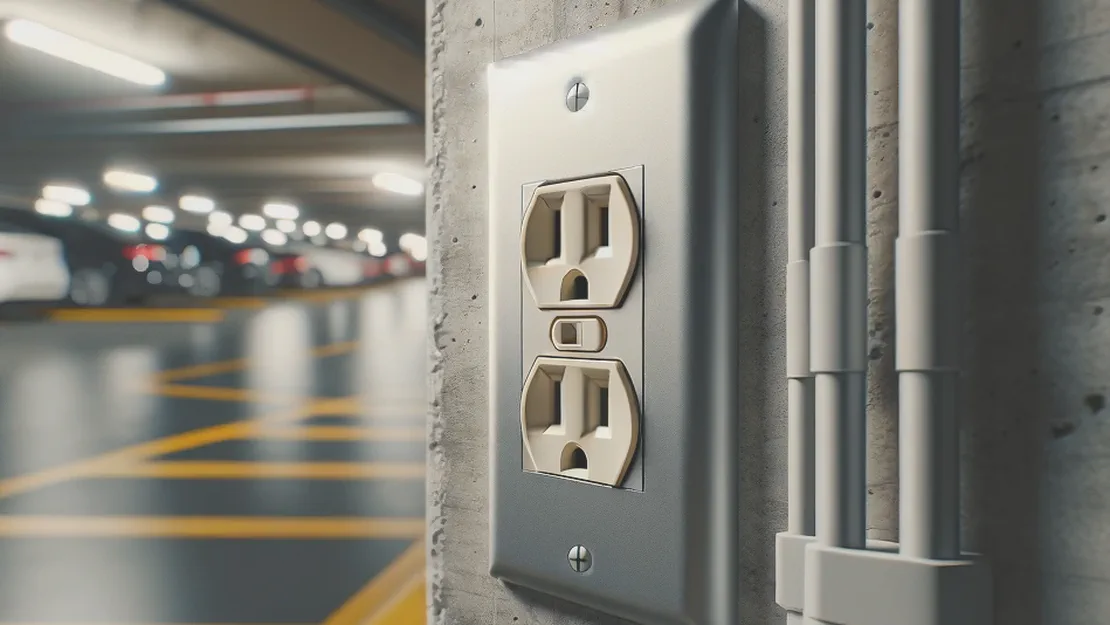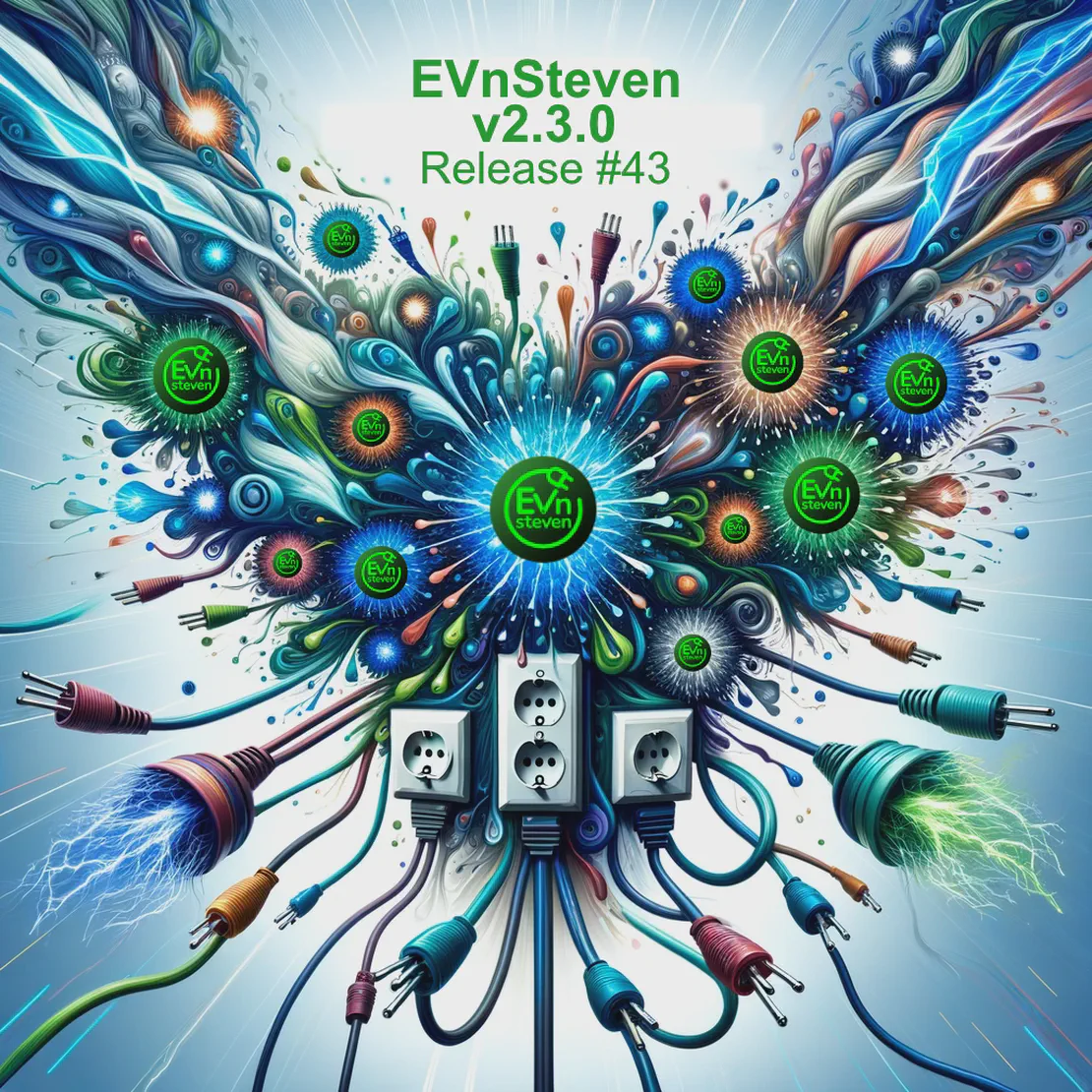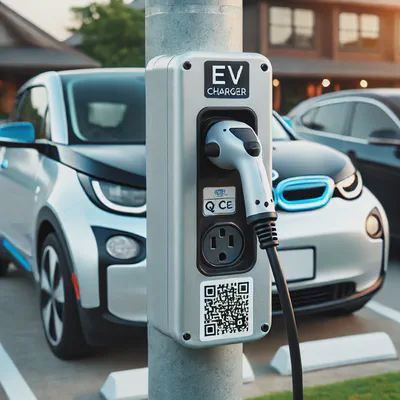
The Value of Trust in Community-Based EV Charging Solutions
- Articles, EV Charging
- EV Charging , Community Charging , Trust-Based Charging
- February 26, 2025
- 3 min read
Electric vehicle (EV) adoption is accelerating, increasing the demand for accessible and cost-effective charging solutions. While public charging networks continue to expand, many EV owners prefer the convenience of charging at home or in shared residential spaces. However, installing traditional metered charging stations can be costly and impractical in multi-unit dwellings. This is where trust-based community charging solutions, like EVnSteven, present an innovative and cost-effective alternative.
Why Trust Matters in EV Charging
Community-based EV charging operates on a fundamental principle: trust between property owners and EV drivers. Unlike public charging stations that rely on hardware-based metering, software-driven solutions like EVnSteven allow station owners to track and invoice usage without expensive infrastructure upgrades. For this model to work effectively, there must be a mutual agreement that ensures fairness and accountability between all parties involved.
The Benefits of a Trust-Based Charging Model
Lower Costs – Traditional metered EV chargers require expensive installation, maintenance, and networking fees. EVnSteven eliminates these costs by leveraging existing electrical outlets and software-based tracking.
Simple Setup – With no need for additional hardware, setting up a charging station is as easy as posting a QR code or NFC tag that links to the EVnSteven app. Drivers can start and stop charging sessions seamlessly, while owners can track usage effortlessly.
Encouraging Responsible Charging – Since users are part of a trust-based system, they are more likely to follow fair charging practices, such as unplugging when their session is complete or adhering to agreed-upon usage limits.
Legal and Transparent Billing – EVnSteven ensures clear and trackable billing, making it easy for station owners to generate invoices and for drivers to review their usage history. This transparency builds confidence in the system.
How to Build and Maintain Trust in Community Charging
Clear Agreements – Station owners should outline the terms of use, including cost per hour at different times of day, charging time limits, house rules, and limitations on liability. Consulting a lawyer is a good idea. The EVnSteven app allows owners to provide a terms of service agreement that users must accept before utilizing the outlets.
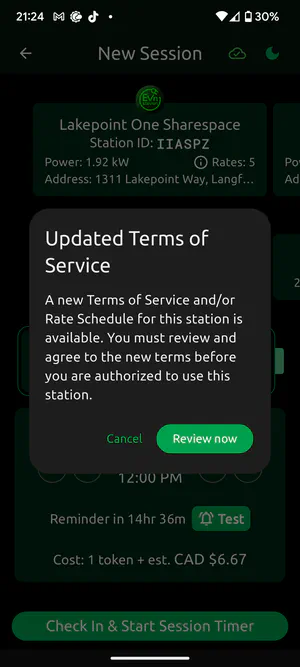
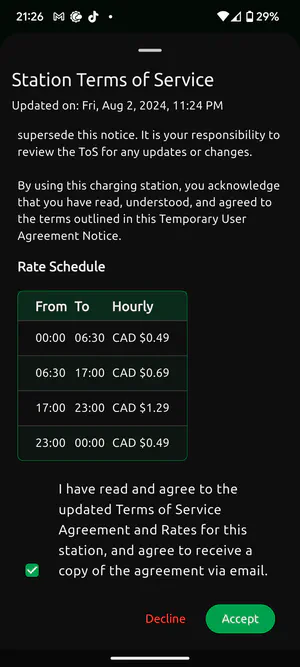
Consistent Communication – Keeping an open line of communication between owners and users helps prevent misunderstandings and ensures smooth operation. The app encourages users to report any issues or concerns directly to the property owner via email. All communication is routed through email rather than the app to ensure privacy and confidentiality.
Fair and Accurate Tracking – EVnSteven provides detailed charging session logs, allowing both parties to verify usage and prevent disputes.
Community Awareness – Educating residents on the benefits of a trust-based system fosters cooperation and makes implementation easier. Owners can also ask users to spot-check each other to ensure honest reporting of usage. Station status is visible to all registered users of the station.
Conclusion
As EV adoption grows, community-driven charging solutions provide an affordable and scalable way to meet demand without requiring massive infrastructure investments. Trust-based systems like EVnSteven empower property owners and EV drivers to collaborate, making residential EV charging more accessible, fair, and efficient. By fostering trust, transparency, and accountability, we can create a future where EV charging is seamless and beneficial for all.
